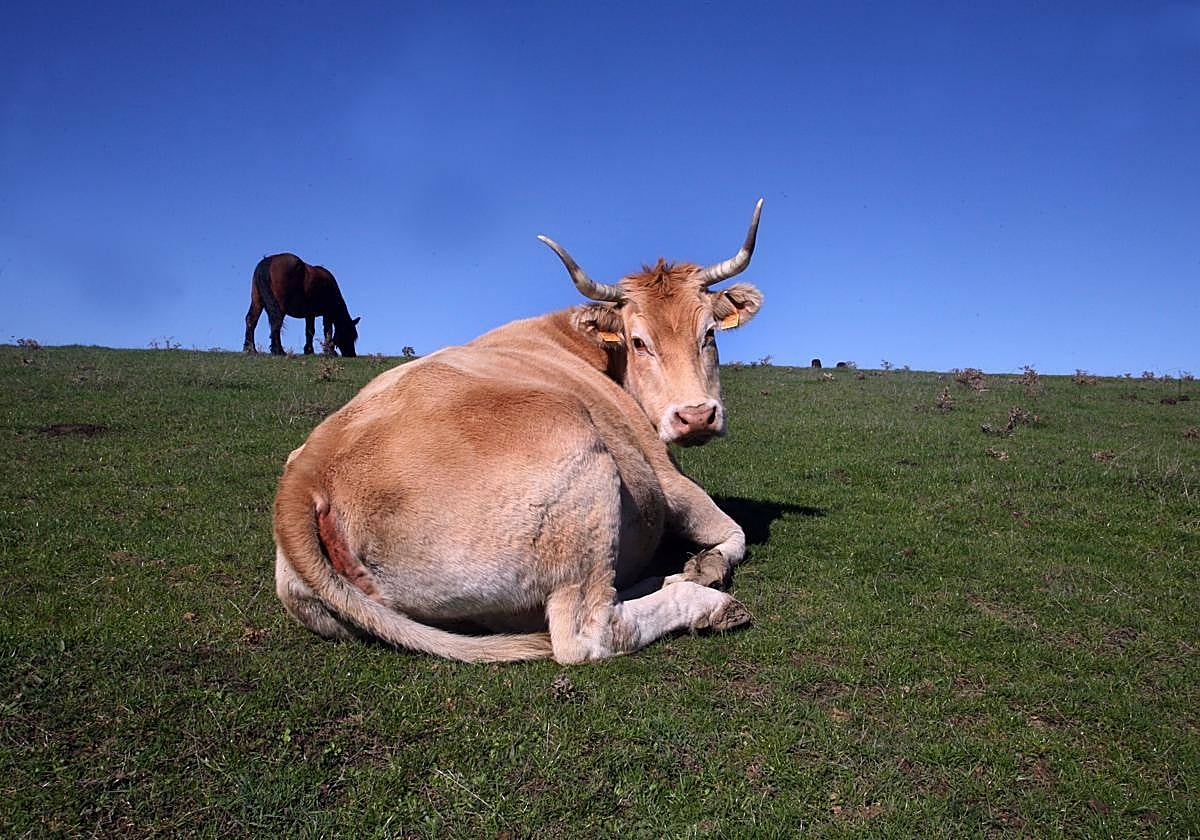Gassy cows and global warming: Granada researchers may soon have a vaccine
Spain's leading, state-run network of research centres (CSIC) announces that its centre in Granada city is to receive just under one million euros from Jeff Bezos' foundation to develop a vaccine that will reduce methane emissions from cows
J. González
Thursday, 8 August 2024, 18:55
CO2, NO2, CH4... this mishmash of chemical acronyms constitutes the greenhouse gases (GHG) responsible, among other things, for global warming. Carbon dioxide, nitrogen dioxide and methane. The latter is the one that scientists and researchers are currently most concerned about. "They are rising rapidly at the fastest rate in decades, requiring immediate action to help avoid a dangerous escalation of the climate crisis," stated the research findings from Duke University published in July. Global methane emissions total 9,390 MTCO₂e (metric tons of carbon dioxide equivalent), half of which come from cows, sheep and other ruminants.
Methane from agricultural production is forecast to increase by 40% by 2050. Yet, to meet the Paris Climate Agreement targets of keeping global temperature rise to 1.5 degrees Celsius, emissions of this gas need to be reduced by 50%. However, to date, no large-scale solutions have been developed to reduce these emissions.
Some nations, like Denmark, have launched a tax on livestock farmers to reduce methane emissions into the atmosphere. With the money raised the Danish government will reforest 250,000 hectares of farmland by 2045, create a reserve of 140,000 hectares of lowlands by 2030 and buy up livestock farms to reduce nitrogen emissions.
Now, Spanish researchers have carved another path that seeks to reduce CH4 in the atmosphere. The CSIC (Consejo Superior de Investigaciones Científicas - a state-run network of 121 key research centres across Spain) stated in a press release on Tuesday that "no major solutions have been developed due to the lack of knowledge about the immunological control that the animal exerts on the microbial population and its activity". Scientists at the Estación Experimental del Zaidín (EEZ), a CSIC research centre in Granada that carries out cutting-edge research in biology and promotes the development of environmental applications and sustainable agriculture and livestock farming, is working with the Royal Veterinary College (RVC) from the UK to develop a vaccine that specifically inhibits the activity of the microorganisms responsible for methane production (methanogenic archaea). This discovery represents an opportunity with the possibility of large-scale application in all types of fields, including for cattle.
According to their initial research, "it would only need to be applied once or twice during the lifetime of the ruminant to maintain its effect". Still in the prototype phase, the EEZ and RVC researchers have received 1.2 million euros from the Bezos Earth Fund (named after Jeff Bezos, founder of Amazon) to continue their research.
Both research centres have to meet a number of objectives for this project. Firstly, they must gain a detailed understanding of the process of microbial colonisation of the digestive tract in the first weeks of the ruminant's life and the response of the immune system to this colonisation during its development. Also to determine which cellular components of the methanogenic archaea interact with the animal's immune system. Then to design a prototype vaccine to reduce methane GHG emissions by 30-50% without harming the animal's digestion and overall health. So, hopefully less gas emissions.
